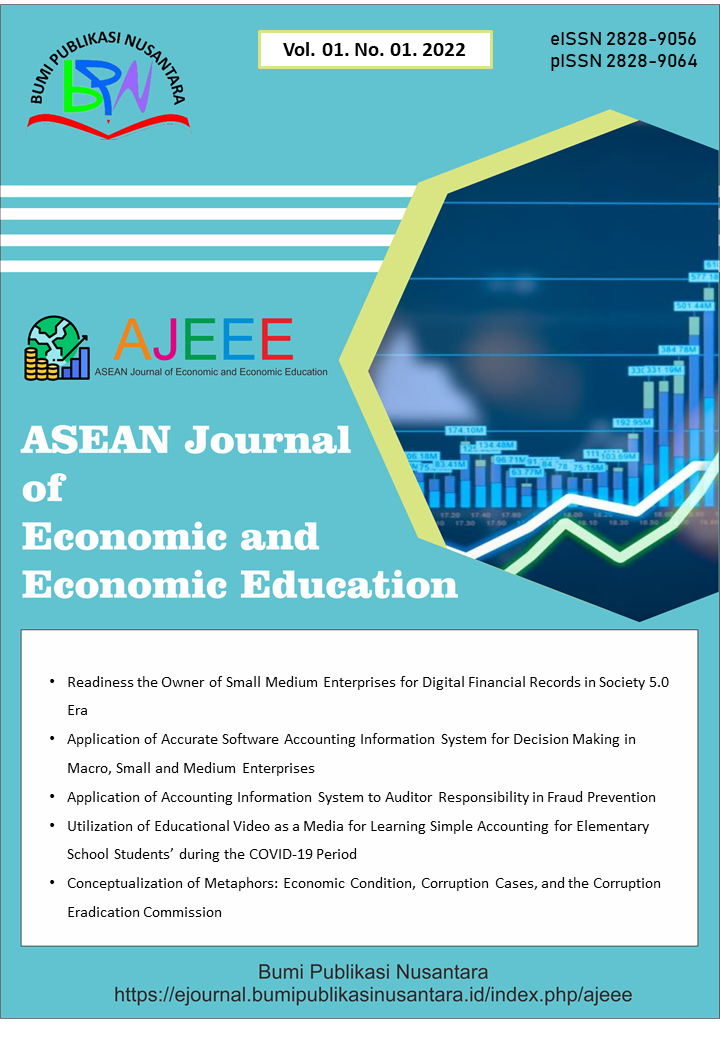Economic Transformation and Development in Umuahia, Nigerian Regional Context, in 1912-1991
 ),
),
(1) Babcock University
 Corresponding Author
Corresponding Author
Abstract
Keywords
References
Al-Najar, H., Khalil, H., and Rahayu, Y.S. (2019). High unemployment records of graduated students in the development of urban agriculture in the Gaza Strip. Indonesian Journal of Science and Technology, 4(2), 196-203.
Asif, M., Saleem, S., Tariq, A., Usman, M., and Haq, R.A.U. (2021). Pollutant emissions from brick kilns and their effects on climate change and agriculture. ASEAN Journal of Science and Engineering, 1(2), 135-140.
Barke, H.D. (2023). Broensted acids and bases: History, misconception, and application today. ASEAN Journal for Science Education, 2(1), 23-32.
Febriani, D., and Pasaribu, P.T. (2024). Food security strategy through regenerative agriculture for capacity building of farmers with "integrated nutrient management training program". ASEAN Journal of Community Service and Education, 3(1), 49-54.
Harutyunyan, M. (2023). Exploring the rich tapestry of gardens and parks: A journey through history, education, and artistic expressions. Indonesian Journal of Multidiciplinary Research, 3(2), 403-416.
Jeffreys, M. D. W. (1956). The Umundri tradition of origin. African Studies, 15(3), 119-131.
Makinde, S.O., Olorunnisola, S.K., and Adeyemi, S.A. (2023). Influence of ICT availability, accessibility, and utilization on agriculture students’ academic performance in universities. ASEAN Journal of Agricultural and Food Engineering, 2(2), 61-70.
Mirzabek, R. (2023a). The education and history of Timur Lenk from Uzbekistan. Indonesian Journal of Educational Research and Technology, 3(2), 105-110.
Mirzabek, R. (2023b). The science education and history of ulugh beg: Astronomer and mathematician from Samarkand, Uzbekistan. ASEAN Journal of Science and Engineering Education, 3(1), 59-64.
Nurrahma, A.H.I., Putri, H.H., and Syahadat, R.M. (2023). Scientific research trends of flooding stress in plant science and agriculture subject areas (1962-2021). ASEAN Journal of Science and Engineering, 3(2), 163-178.
Soegoto, H.S., Pohan, M.A.R., Luckyardi, S., Supatmi, S., Amasawa, E., Phithakkitnukoon, S., and Hasibuan, Z.A. (2025). Contributing factors to greenhouse gas emissions in agriculture for supporting sustainable development goals (SDGs): Insights from a systematic literature review completed by computational bibliometric analysis. ASEAN Journal of Science and Engineering, 5(2), 199-230.
Article Metrics
Abstract View : 23 times
: 23 times Download : 21 times
Download : 21 times
Refbacks
- There are currently no refbacks.
Copyright (c) 2025 Bumi Publikasi Nusantara

This work is licensed under a Creative Commons Attribution-ShareAlike 4.0 International License.



_publication_ethics1.png)



